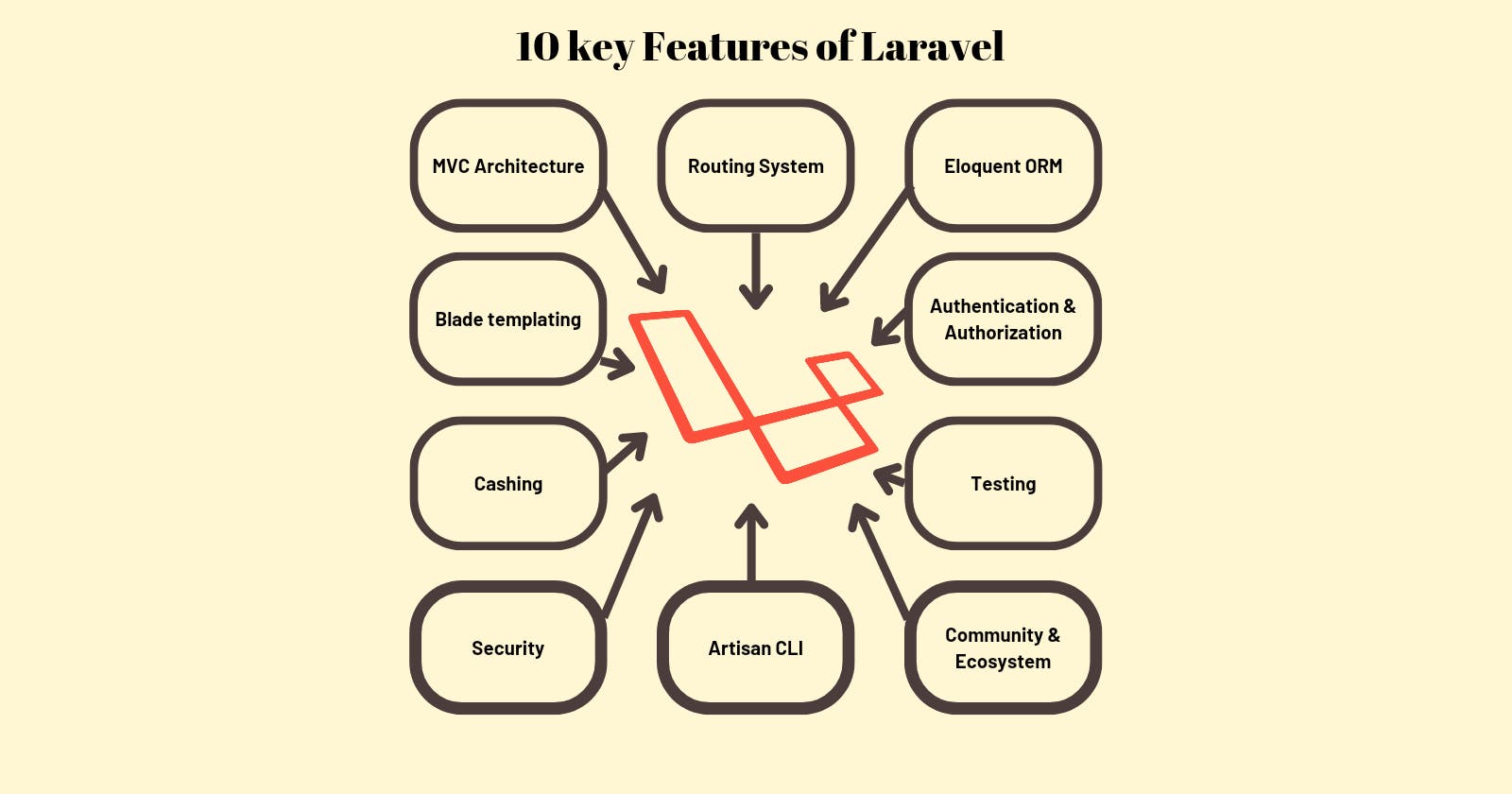Laravel is a popular open-source PHP framework used for web application development. It follows the Model-View-Controller (MVC) architectural pattern and provides a robust set of tools and features to simplify the development process.
Here are 10 key features of Laravel:
1. MVC Architecture: Laravel follows the MVC pattern, which helps separate the application logic from the presentation layer, making the code more organized and maintainable.
2. Routing System: Laravel provides a powerful routing system that allows developers to define clean and SEO-friendly URLs for their applications. Routing helps map URLs to the appropriate controllers and actions.
3. Database Abstraction and Query Builder: Laravel's Eloquent ORM (Object-Relational Mapping) provides a simple and expressive way to interact with databases. It supports various database systems and allows developers to perform database operations using an intuitive syntax.
4. Blade Templating Engine: Laravel's Blade templating engine provides an elegant way to create reusable and dynamic views. It offers features like template inheritance, control structures, and sections, making it easier to build user interfaces.
5. Artisan CLI: Laravel includes a command-line interface called Artisan, which offers a wide range of helpful commands for tasks such as database migrations, generating boilerplate code, and running tests. It simplifies common development tasks and boosts productivity.
6. Authentication and Authorization: Laravel provides a built-in authentication system that makes it easy to implement user registration, login, and password reset functionalities. It also supports authorization mechanisms, allowing developers to control access to specific parts of the app.
7. Caching: Laravel offers caching mechanisms to improve application performance. It supports various cache drivers, including file, database, and Redis, and provides a simple API for caching data.
8. Testing: Laravel comes with built-in support for testing, including unit testing and feature testing. It provides a testing suite called PHPUnit and offers helpful testing utilities to ensure the stability and quality of your application.
9. Security: Laravel incorporates security features such as protection against cross-site scripting (XSS) attacks, cross-site request forgery (CSRF) protection, and input validation. It follows best practices to keep your application secure.
10. Community and Ecosystem: Laravel has a vibrant and active community that contributes to its growth and development. There is a wide range of third-party packages and extensions available through the Laravel ecosystem, making it easier to add additional functionality to your apps.
Laravel is known for its elegant syntax, developer-friendly approach, and comprehensive documentation, making it a popular choice for building web applications. It allows developers to focus on writing clean & maintainable code.
#php #laravel

